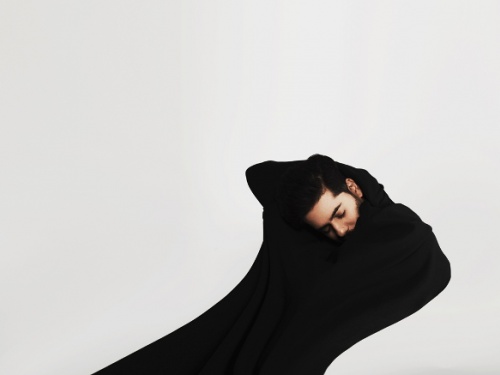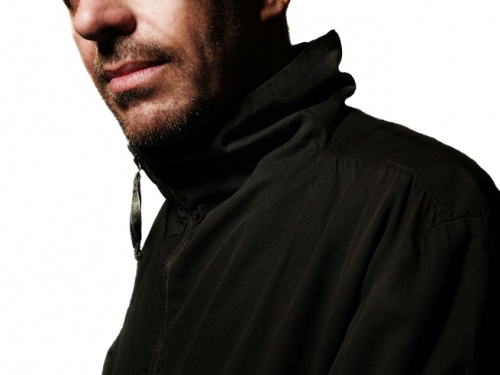Living with the Paradox of Masāfāt
The proximity and distance of contemporary Egypt's endangered underground
The ICA have teamed up with ThirtyThree ThirtyThree in partnership with VENT and the University of Kent to present Masāfāt, a two-part festival that takes place in both London and Cairo. The ICA Bulletin got in touch with Bosaina, a Syrian-Egyptian artist who runs VENT alongside its two founders, to discuss the realities of underground culture in contemporary Egypt, the urgent relevance of a programme like Masāfāt today, and 'the architecture of memory'.
You cannot drive into Cairo without passing the Baron Empain. As a child in the 1990s, I was haunted by images of sacrificial rituals and the rumours that Satanists had taken over the abandoned palace. As an adult, I learned this.
Since opening in 2013, VENT has attracted both support and skepticism. After two seasons of performances, workshops, talks and collaborations with both local and international partners, the venue closed in June 2015. The closure came following a period of tense talks with the property’s owners, beset by fears stemming from an incident in April when we were forced to shut down temporarily by the authorities. The allegations? Incorrect permits, drugs and LGBT activity. By June we’d left the venue, and the space that once fostered various underground scenes became just another upscale club to add to Cairo’s long list of spaces reserved for the city’s elite.
The space that once fostered various underground scenes became just another upscale club to add to Cairo’s long list of spaces reserved for the city’s elite.
The conversation with ThirtyThree ThirtyThree officially began in September 2015 when VENT hosted the popup afterparty for Labyrinths. It was a minimal production at the old French consulate in downtown Cairo, made possible by casual email exchanges between the partners: it boasted functional décor including a lopsided fridge, an equally unstable DJ booth designed by Gaddafi the Carpenter, and two neon lamps from my bedroom. The dimly-lit property hosted four hundred people that night.
The current state of cultural affairs in Egypt is challenging, to say the least. There is a heavy air of defeat and a shared feeling of commiseration among independent artists and institutions alike. Many of those involved have retreated, some still operate from private spaces, while others join the exodus of Arab artists brought about by the suppression of personal freedoms and censorship in the arts. Even longstanding cultural hubs have become targets.
Revolutionary artists began inserting protest slogans into their songs, the foreign press ushered electro chaabi and mahraganat into the mainstream, while funding bodies often required Middle Eastern artists to produce overtly Arab work in order to be eligible for career-defining grants.
Following the 2011 revolution, Cairo saw a rise in popularity among artists who encouraged direct political and social themes in their work. Revolutionary artists began inserting protest slogans into their songs, the foreign press ushered electro chaabi and mahraganat into the mainstream, while funding bodies often required Middle Eastern artists to produce overtly Arab work in order to be eligible for career-defining grants. From VENT’s early exchanges with ThirtyThree ThirtyThree, it was clear that we were both interested in rewriting the narrative to include newer voices from underexposed scenes and challenging the tired formats that have dominated our cultural scope for over five years now.
In a radio interview I did with the Palestinian artist Muqata’a, I asked if he shared similar views on these limitations considering the elements of conscious rap in the music coming out of Ramallah and Jerusalem. There’s been an evolution, and he told me that: “...at first what started in the scene was extremely political, it was very direct, directed at the colonizer, the government, and then it slowly shifted. It became more personal, more poetic, about expressing yourself and not trying to express what people wanted to hear.”
Two Egyptian artists creatively implementing traditional instrumentation of the Middle Eastern variety into experimental electronic music are Nadah El Shazly and Abdullah Miniawy. Diversions include the deconstructive sounds of ZULI, Nur (graduate of Sonic Arts from Goldsmiths University) and Ola Saad, whose participation in the Egyptian Females Experimental Music Session project reinforces the notion that the introduction of regional artists to a global audience should not solely be packaged by geography, gender or genre.
Masāfāt, a word meaning both 'proximities' and 'distances' in Arabic, aims to address these gaps by examining artistic practices in regional arts, as well as inviting international participants into play.
Diversity, visibility and cultural hegemony are touchstone topics in the global discourse of contemporary arts, but for the Egyptian vanguard the immediate issues of public space and personal expression take priority. Masāfāt, a word meaning both 'proximities' and 'distances' in Arabic, aims to address these gaps by examining artistic practices in regional arts, as well as inviting international participants into play. The festival will navigate through existing relationships between the artists involved and extend the exchange to new ones.
Aside from the music programme, film screenings and talks taking place include works by French-Iranian filmmaker Arash Nassiri and a panel discussion exploring science fictional/dystopian visions of the Middle Eastern urban landscape. It’s an important time to showcase these developments, especially in Cairo where creative communities are actively engaged in the protest of withdrawal. London too will see advanced dimensions in contemporary music and art from the Pan-Arab region in addition to forward-thinking artists from its own fringes.
The last exhibition I attended at Townhouse Gallery before its demolition showed subjective varieties of contemporary art loaded with surrealism, satire and internet aesthetics. Sidy Benamar (not his real name), one of the participating artists, has long been concerned with the misuse of heritage sites at the hands of Egypt’s ministries. For him, the exhibition was a culmination of two years of research into architectural nostalgia, featuring structures of decay at the intersection of local politics and urban legend, like the haunted Baron Palace. Masāfāt, both up close and far away, invades the architecture of memory with the vital sounds of the future. ■
Masāfāt runs 1-4 September in London and 20-24 September in Cairo.
Since launching in 2013, VENT has been focused on promoting underground music in Egypt, creating various platforms for over 200 musicians in the process.









